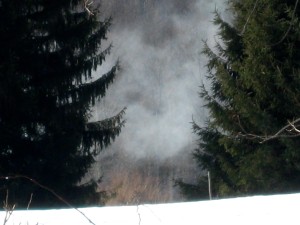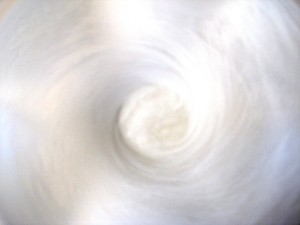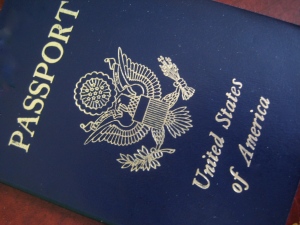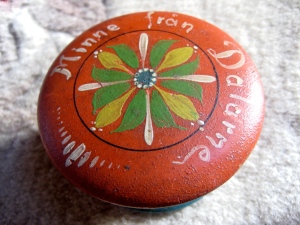
– Photo by Jan Ketchel
I decide to pursue an empty mind. Thoughts become the target. There are, I notice, different kinds of thoughts. One kind is worry. Worry tends to take over, spinning, attacking, and defeating even the most intentional of counterattacks. Another kind of thought comes suddenly. I notice a tiny bump on my little toe.
“Uh oh,” is my first thought. “What’s that bump?”
“Calm down,” another voice interjects, “check out the other little toe.” And so I do and I see that I have another similar bump on the other little toe.
“Oh, that’s funny,” I say to myself, “how easily I jump to a conclusion, how I immediately think something is wrong.” Just to prove that nothing is wrong, I check out both little bumps simultaneously, judging them to be exactly the same size and shape, nothing more than the structure of the bones of my toes. And then I laugh at myself for even this need to check as I let the whole thing go, but not before I take note of that other voice that spoke and told me to calm down.
“Don’t obsess!” I tell myself, “you just create a situation that doesn’t exist in reality, but you sure could create it in your mind. Empty the mind!”
And so, I’ve become aware of my thoughts. There are, however, thoughts, and then there are another kind of thoughts. The kind of thoughts that don’t belong in an empty mind are usually pretty recognizable, such as the ones described above, worry, fear, etc. I also notice how even seemingly good thoughts are not so good. They imply that something is wrong, that I need to insert positive thoughts when in reality all I need is to spend my energy on emptying my mind of all thoughts because they are all intrusive, inserted intentionally or coming as a result of issues or circumstances arising in life.
The other kind of thoughts that come are non-intrusive, like the voice that told me to calm down. These thoughts come from the higher mind, from the higher self, and they come in a different way. They come from the observer self who knows all, who is present with us while we live our lives and struggle with our thoughts, our obsessions, our desires, our truths, our fears and our memories.
Such thoughts have a completely different feel from the intrusive thoughts of worry and obsession. They speak to us very calmly, very soberly. Devoid of emotion and feeling, they deliver us messages that we know, deep down inside of us, are so right. The place where these thoughts come from, the higher self, is the place we want to connect with and be guided by more often. This is the place where we yearn to reside. We can consciously choose to listen only to this voice to deepen our connection with this higher self.
We learn to trust the thoughts of this higher self as we test it, letting it into our lives, asking it to help us. It tells us to be calm, to step back and wait a second, to not get all riled up, to not act out or lash out, but to simply pull our energy inward and maintain our equilibrium. Depending on our circumstances, how in-tune with this other producer of thoughts we are, we might hear this voice often or only rarely.

– Photo by Jan Ketchel
As we work with it, we soon find that this higher self tells us everything we need to know. We get to a place where worry comes only occasionally, where obsession hardly at all. We may not have empty mind all the time, but it becomes easier to get there the more we train ourselves to recognize the types of thoughts we entertain. We quickly discern between welcome thoughts and unwelcome ones and get pretty good at getting rid of the unwanted ones.
Thoughts are entities. They are looking for a nice juicy unguarded mind to enter and feed off. They are looking for the unaware, the inattentive. They are looking to sneak in and plant themselves and get as much energy as possible. They circle around the universe, the same thoughts endlessly seeking sustenance. We can consciously decide whether or not we want them inside us. They are no better than a disease. An aware mind recognizes them and gets rid of them, refusing them immediately.
One day, author Doug Boyd was gathering herbs with Rolling Thunder and his son Spotted Eagle. Doug was assaulted by swarms of mosquitoes. Rolling Thunder and his son were not interfered with at all, but Doug suffered unrelenting attacks, being bitten and then itching like crazy. It wasn’t until evening that Rolling Thunder said to Doug, “Maintain your good feelings.”
He meant, maintain his good feelings inside so that his energy outside would be calm and he would not give off smells, senses, and vibrations that normally attract mosquitoes. The mosquitos are like thoughts, entities that want what they want; in the case of the mosquito, as much blood as they can get. The way to get rid of the mosquitos, Doug learned, was to maintain calmness and good inner energy, to calm the mind, the body, the senses, so that the vibrations of the body would be calm as well.
As we change our vibrations we become unattractive to things like pesky mosquitos and meandering thoughts. By maintaining inner calmness and good feelings about ourselves, we learn that rogue thoughts have no use for us. We offer them nothing and so they leave us alone. In this lesson, we learn that we have the power to control what happens to us outside by how we maintain our inner state, and it works in reverse too.
We can gain control over everything. Sometimes it may feel appropriate to be upset and to react to something happening in the world outside of us. But if we step back from those feelings for a moment, empty ourselves of them, and get back to our good feelings about ourselves, we might find that they are actually not as important or appropriate as we first thought. We find we can let them go.
On another day, Doug Boyd was alone with Rolling Thunder’s son Spotted Eagle. Once again they were going out to gather herbs. They came upon a man in a remote area, standing next to his pickup truck, obviously angry about something. He yelled about all kinds of things, on the verge of a racist rant it almost seemed. Spotted Eagle quickly assessed the situation. He did not speak but simply got back into the car. Doug did the same and they calmly drove back out the way they had come. Spotted Eagle, a Medicine Man in training, knew it was not going to be worth an encounter.

– Photo by Jan Ketchel
We too must learn to trust that our higher self knows what is really important and where we should be spending our energy. More often than not anger or confrontation are not appropriate reactions. Our higher self will always guide us to a reaction in alignment with a greater calling, if we care to listen, and then it’s up to us to take the advice and see what happens.
Perhaps nothing is more important than maintaining our good feelings about ourselves, and our empty mind. If our good vibrations can have an effect on our thoughts, on our physical bodies, and even on how mosquitos react to us, imagine what else could happen if we all gained and maintained only good feelings about ourselves all the time. The world would surely be a changed place.
Keeping an empty mind and sending good vibrations,
Jan
Excerpted stories come from Doug Boyd’s book Rolling Thunder, 1974.



